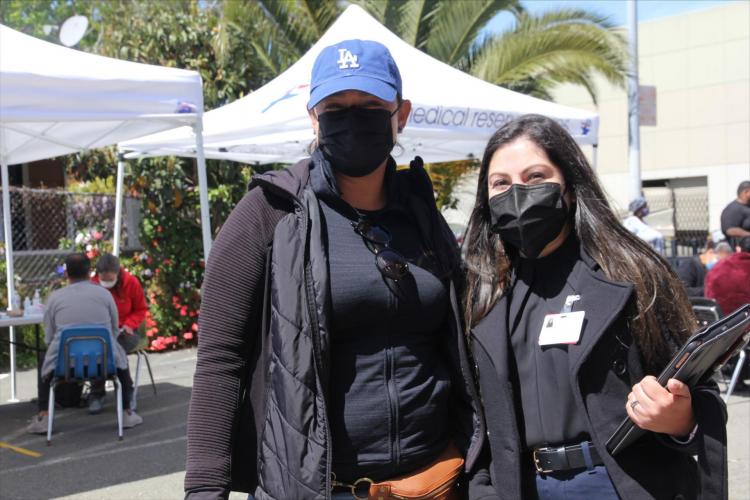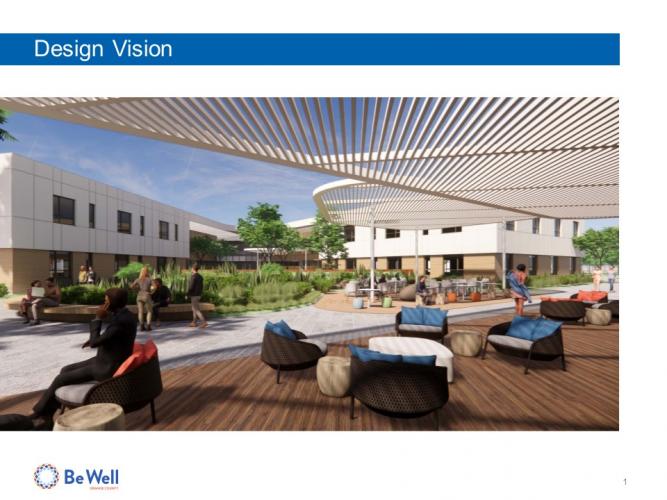One Year Anniversary of ARPA, CSAC Highlights County Projects
The American Rescue Plan Act (ARPA) was signed into law on March 11, 2021 by President Joe Biden one year ago and has continued to provide much needed funding to facilitate the country’s recovery from the COVID-19 pandemic. Specifically, California’s 58 counties have benefitted tremendously from ARPA having received a total of $7.6 billion from the State and Local Fiscal recovery Fund to: support COVID-19 response efforts, replace lost public sector revenue, support immediate economic stabilization, address systemic public health and economic challenges, and provide premium pay for essential workers, among others.
In celebration of the one-year anniversary of this Act, CSAC is highlighting several ARPA investments made by California Counties to support their communities.
Riverside County:
On Monday, CSAC highlighted Riverside County’s $15 million investment into their Early Care and Education (ECE) Recovery Fund. This investment supports working families by stabilizing and expanding availability of the ECE to support the return of working parents to the workforce. Five million dollars will go toward licensed childcare facility projects to increase the number of ECE spaces, with priority given to projects leveraging municipal and/or state ARPA dollars. That allocation will build on First 5 Riverside County’s current $11.4 million ECE Infrastructure Investment. The remaining $10 million is earmarked for the ECE workforce and ECE businesses serving children supported by the California Alternative Payment Program. Read more about this Fund in our Blog.
Kern County:
On Tuesday, CSAC featured Kern County’s ARPA investment. The County is utilizing its $10 million ARPA funds to expand community access to free public wi-fi through its Free Public Wi-Fi Project. The Project will use County facilities and parks to reach underserved and disadvantaged communities to modernize and build out infrastructure to address the digital divide and technology equity gaps. The County is currently in the process of selecting a private project management company to partner with the County on the final design of the project and ongoing project management. Check out CSAC’s Facebook post about this program.
San Joaquin County:
On Wednesday, CSAC featured San Joaquin County and its allocation of ARPA funds to support small businesses through its Small Business Grant Program. In collaboration with the Employment & Economic Development Department and local Chambers of Commerce, the $20 million program provides grants of up to $100,000 to small businesses that suffered losses during the pandemic. This includes past due rent, mortgage, and utilities. Read more at CSAC’s Twitter post.
Butte County:
On Thursday, Butte County’s Emergency Non-Congregate Housing Site Project was featured. This $1.7 million dollar effort, funded from ARPA will help provide 177 temporary emergency pallet shelters for up to 354 individuals experiencing homelessness in the City of Chico. The County is collaborating with the City of Chico and Butte County’s Behavioral Health and Employment and Social Services divisions, and others to bring the project to fruition. Read more at CSAC’s Facebook post.
Contra Costa County:
 On Friday, CSAC will feature Contra Costa and Orange
Counties’ ARPA investments on our Facebook and Twitter
accounts.
On Friday, CSAC will feature Contra Costa and Orange
Counties’ ARPA investments on our Facebook and Twitter
accounts.
Contra Costa’s $22.4 million project takes aim at mitigating how the pandemic has disproportionally impacted communities of color, low-wage essential workers, seniors and other historically disadvantaged populations. In partnership with more than 150 community-based organizations on outreach and engagement, the investment supports: the continuation and expansion of multiple community engagement efforts, including the Community Ambassadors programs, the COVID-19 Historically Marginalized Communities Engagement Unit (HMCE), and the Mobile Equity Vaccination Team.
Orange County:
 Orange County is investing $40 million in ARPA
funds to fund the County’s Be Well Orange County-Behavioral Health
Campus. The 22-acre campus will be constructed in two phases
to provide 75,000 SF of services for both adults and youth to
fund the continued critical need for coordinated mental health
and substance use disorder services. Services will include: a
crisis stabilization urgent care, extended stay ‘residential’
treatment, and outpatient day programs, along with extensive
outdoor spaces for therapeutic and wellness activities.
Orange County is investing $40 million in ARPA
funds to fund the County’s Be Well Orange County-Behavioral Health
Campus. The 22-acre campus will be constructed in two phases
to provide 75,000 SF of services for both adults and youth to
fund the continued critical need for coordinated mental health
and substance use disorder services. Services will include: a
crisis stabilization urgent care, extended stay ‘residential’
treatment, and outpatient day programs, along with extensive
outdoor spaces for therapeutic and wellness activities.











































